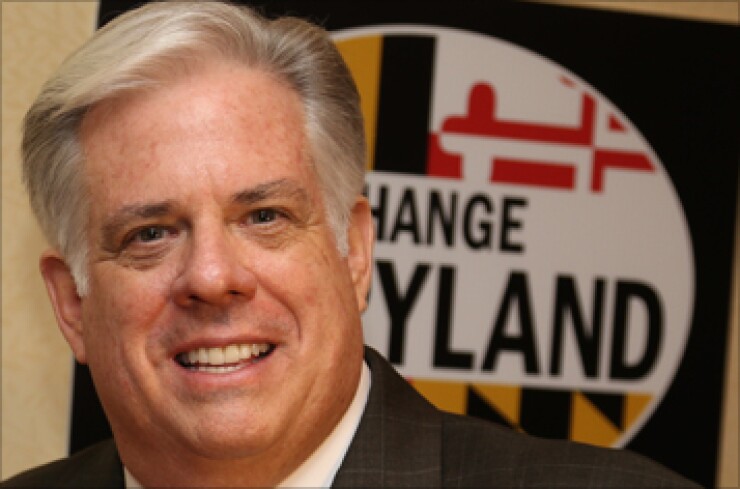
DALLAS — Maryland Gov. Larry Hogan said Thursday that he wants to see significant cost reductions in the proposed $2.45 billion Purple Line light-rail system before deciding the fate of the public-private partnership project next month.
Four international investor groups seeking a concession to build and operate the 16-mile rail system for 35 years asked in early February for a delay in bid submissions after Hogan asked his new Transportation Secretary Peter Rahn for ideas on how to cut Purple Line costs.
Hogan will decide in mid-May whether to proceed with construction of the rail line or cancel the project. If the decision is to go ahead with the Purple Line, bidders will have until Aug. 19 to file proposals reflecting a lower project cost.
"We're going to take a look at how we can, if we can, move forward at all," Hogan said at news briefing marking his 100th day in office sponsored by the Maryland-Delaware-DC Press Association. "If we can, it has to be at greatly reduced numbers, to find a more cost-effective way to do it."
There are "legitimate, positive arguments" for building the Purple Line, but the price tag of some $150 million per mile is too high, said Hogan, a Republican. He declined to say how low the project's price needs to go to win his approval.
"I don't have a number, but [the current cost] is completely out of whack," he said.
Hogan, an Annapolis developer who ran for office as an avowed opponent of the Purple Line and the $2.9 billion Red Line rail proposal in Baltimore, defeated Democratic Lt. Gov. Anthony Brown, 51.4% to 46.9%, in an upset in the November election. Brown supported state funding for both transit projects.
Hogan said during the campaign that he preferred spending transportation dollars on roads rather than transit. He promised to cancel the two rail projects if he became governor, but just before the election Hogan said the Red and Purple lines were "worth considering."
Hogan maintained his position favoring highways over transit at Thursday's news briefing.
"Our priority is building and fixing and maintaining roads and bridges," he said.
"It's not whether this is a worthwhile idea," Hogan said. "It's a question of whether the state can do it at this point in time."
The four bidders on the short list selected in 2014 were told soon after the November election that the original bid deadline of early January, before Hogan's inauguration on Jan. 23, would be pushed back to March 12. The submission deadline was extended again after Hogan asked for the cost-cutting proposals.
The losing bidders will receive $2 million each from the state for participating in the process. Maryland officials said the reimbursement was necessary to ensure adequate private sector competition for the rail project.
The successful consortium will invest up to $900 million in the Purple Line for the 35-year concession to operate and maintain the system. The private partner will receive availability payments of up to $200 million a year.





